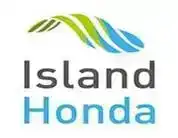UH Mānoa launches Maui wildfire health effects study, seeking 1,000 participants

A team of University of Hawaiʻi at Mānoa researchers are asking Maui residents to participate in a study to analyze the short- and long-term health effects of exposure to the deadly wildfires that destroyed Lahaina and parts of Kula. Registration begins Jan. 5, 2024.
The team, led by UH Mānoa Professors Ruben Juarez (UH Economic Research Organization–HMSA Distinguished Professor of Health Economics) and Alika Maunakea (professor of epigenomics, John A. Burns School of Medicine, Department of Anatomy, Biochemistry, and Physiology) in partnership with several units at UH, is recruiting Lahaina and Kula residents to be part of a cohort for the longitudinal study.
They will conduct tests and collect data to examine immediate exposures to environmental hazards, and then repeat the tests annually over the next five to 10 years, possibly even longer, to link these exposures to long-term health outcomes.
“Our multidisciplinary team endeavors to undertake a holistic examination of the wildfires’ impacts using a cohort study design, employing a blend of robust survey instruments and biospecimen analyses to include multi-omic technologies,” Maunakea said.
“Insights from data collected are poised to steer the state of Hawaiʻi, local organizations and policymakers in resource optimization and intervention blueprinting, that altogether addresses imminent community needs, informs recovery, and supports the foundation for future disaster preparedness,” Juarez said.
Partnering with community organizations
Juarez and Maunakea’s team will partner with community-based organizations to recruit residents in an effort to build trust and demonstrate how their research will benefit the Maui communities impacted by the wildfires. They are hoping to sign up at least 1,000 people to participate in the study.
Using established methods, the team will conduct a survey on each resident, and then collect anthropometric data (BMI, blood pressure, spirometry, etc.), as well as saliva/buccal cells (cells found inside of the cheek) and urine to measure biomarkers of stress, such as inflammation, and exposures to toxicants, such as heavy metals, resulting from exposures to the wildfires.
One of the organizations the researchers are partnering with is Roots Reborn, a Maui-based grassroots organization founded to support the needs of the Maui wildfires immigrant community to respond to identified and yet emerging immigrant needs.
“Monitoring the health of minority groups isn’t just important; it’s imperative,” said Roots Reborn Co-Founder and Executive Director Veronica Mendoza Jachowski. “Often overlooked, these communities compose a large yet often invisible segment of our community. With at least 32% of Lahaina’s residents being foreign-born, this study will strive to capture an accurate view of Lahaina’s population. By actively engaging immigrant groups, the study can assess the impact of wildfire toxins and safeguard the health and well-being of every individual, regardless of immigration status.”
To participate in this study, participants must be adults who resided or worked in the area affected by the wildfires in Maui in August 2023, and are expected to be in Hawaiʻi for at least five years. Register for an appointment at MauiWES.org starting January 5.
Combatting health, social inequities
The pre-existing health and social inequities in Hawaiʻi‘s multiethnic population are likely to be exacerbated by the impact of the wildfires. Hawaiʻi’s disaggregated population data provides clear evidence for the stark disparities and cancer inequities across ethnic minorities. In particular, Native Hawaiians experience a substantial cancer burden, with some of the highest risks among all US racial/ethnic populations for breast, lung, colorectal, pancreatic, gastric, liver, endometrial and cervical cancers.
In addition, Filipino American cancer rates have dramatically increased over the last three decades. They now have the highest incidence of lung, colorectal and thyroid cancers among all racial/ethnic groups in Hawaiʻi, and rapidly increasing rates of breast and prostate cancers. Additionally, differences in cancer risk and incidence among the growing Hispanic/Latino population in Hawaiʻi and nationally vary by cancer type. However, how the Maui wildfires will impact the risk and prevalence of cancer disparities already present remains unknown.
Before the wildfires, these populations experienced higher rates of chronic disease risk factors, such as smoking and obesity, along with lower levels of educational attainment and higher poverty rates. Historical trauma continues to influence health disparities, potentially even causing biological modifications.
The study emphasizes the need to understand the cultural, psychosocial, and social determinants of health, as well as the impact of occupational and environmental exposures on disease risk. With a focus on Maui to include Lahaina, which has a significant NHPI, Filipino and Hispanic population, the research aims to shed light on the socioeconomic and health situation of underrepresented groups, providing crucial information for interventions and public health policies to achieve health equity in Hawaiʻi‘s diverse minority populations.
This project is being funded through a $250,000 grant from the Hawaiʻi Community Foundation, and the researchers are seeking additional donors and funders to expand and support the cohort longitudinally.










